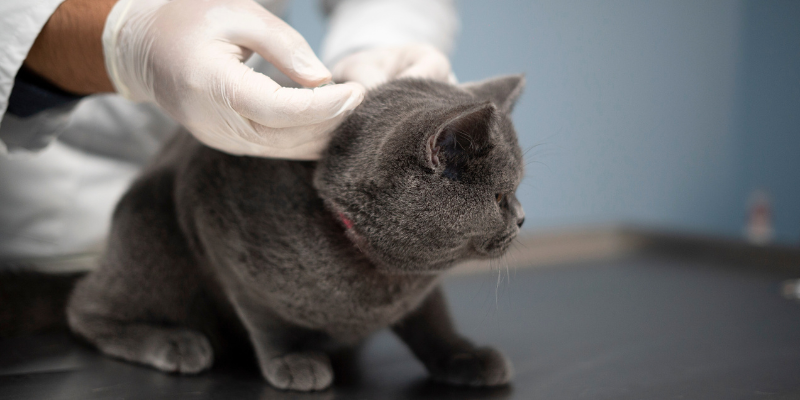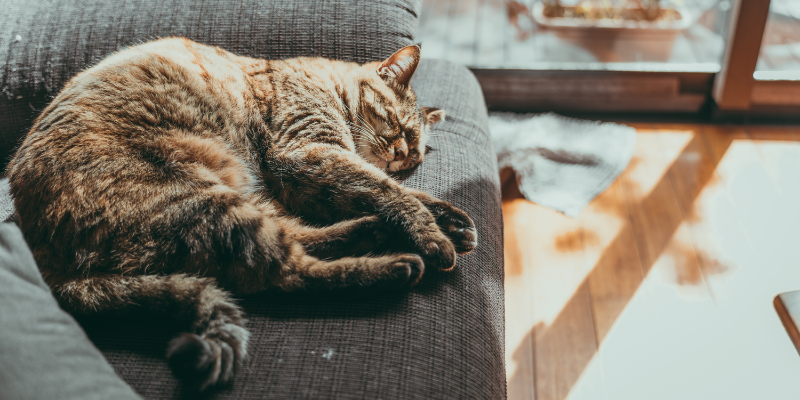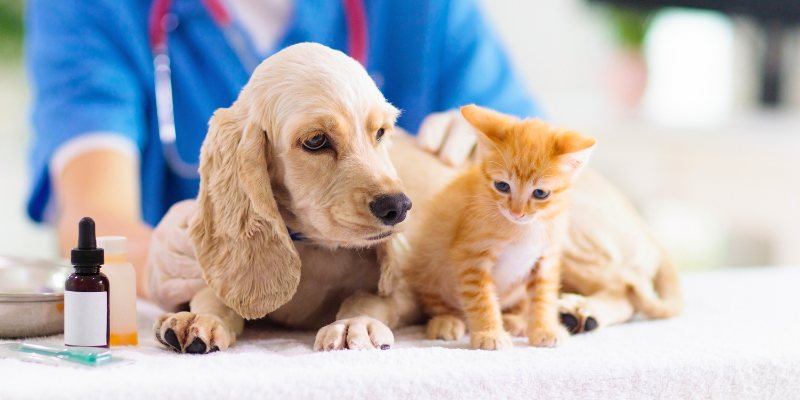[et_pb_section fb_built=”1″ _builder_version=”4.14.2″ _module_preset=”default” custom_padding=”1px|||||” global_colors_info=”{}”][et_pb_row _builder_version=”4.14.2″ _module_preset=”default” global_colors_info=”{}”][et_pb_column type=”4_4″ _builder_version=”4.14.2″ _module_preset=”default” global_colors_info=”{}”][et_pb_text _builder_version=”4.14.2″ _module_preset=”default” global_colors_info=”{}”]
Regular veterinary care is important for keeping your pet in good health. During their annual veterinary checks (or twice-yearly checks for older pets!), we will perform a general physical assessment and make recommendations on any preventative therapies or proactive treatments that we feel your pet would benefit from.
Just as important, however, is the daily care that your pet receives at home! Here are some basic things you can do to support your pet’s long-term health, starting with their mouth!
Choose the right food
We recommend that dogs and cats are fed at least the majority of their diet as a premium veterinary brand food. These dry and canned foods are complete and balanced, having been carefully formulated by PhD certified or board-certified veterinary nutritionists and food scientists to meet guidelines for ingredient quality, food safety and adequate macronutrients (protein, fats and carbohydrates) and micronutrients (vitamins and minerals) necessary for long-term health.
If your pet has any special dietary requirements, we’d recommend having a chat with our vet team for more personalised advice. We can make recommendations on appropriate prescription diets for particular health concerns, or provide advice on how to select a quality commercial diet for your pet. For pets on home-cooked diets, we can refer you to a certified veterinary nutrition service to help ensure that your pet’s diet is complete and balanced in the long term.
Good dental hygiene
Regular home dental hygiene is important for keeping periodontal disease at bay – this is the gum and jaw inflammation and infection that naturally develops if teeth are not kept clean. Periodontal disease will cause chronic pain for your pet (not to mention stinky breath) and can also release bacteria into their bloodstream, affecting the health of other organs, such as the heart and kidneys.
The best home dental hygiene routine involves daily care for your pet, as well as occasional veterinary dental cleaning procedures.
Depending on your pet’s temperament, home care will involve daily brushing (which is the gold standard of care) or prescription dental diets, chews or food/water supplements. Ask our team for more personalised recommendations on maintaining your pet’s dental health!
Monitoring EDUF
EDUF refers to your pet’s eating and drinking levels, and the quality and quantity of their urine and faeces. Monitoring these activities at home can often give you clues as to any potential unwellness in your pet, especially with more subtle internal illnesses which may not show other obvious symptoms in their early stages.
For instance, a persistent increase in drinking levels can be seen with health issues such as chronic kidney disease, liver disease, Cushing’s disease in dogs, hyperthyroidism in cats or diabetes.
If you notice any changes in your pet that concern you, it’s best to book an appointment with our knowledgeable team for a further assessment.
By taking good care of your pet’s mouth on a day-to-day basis, feeding a quality diet, and monitoring EDUF, you can help ensure their general health and quality of life – and that’s the tooth!
[/et_pb_text][/et_pb_column][/et_pb_row][/et_pb_section]






